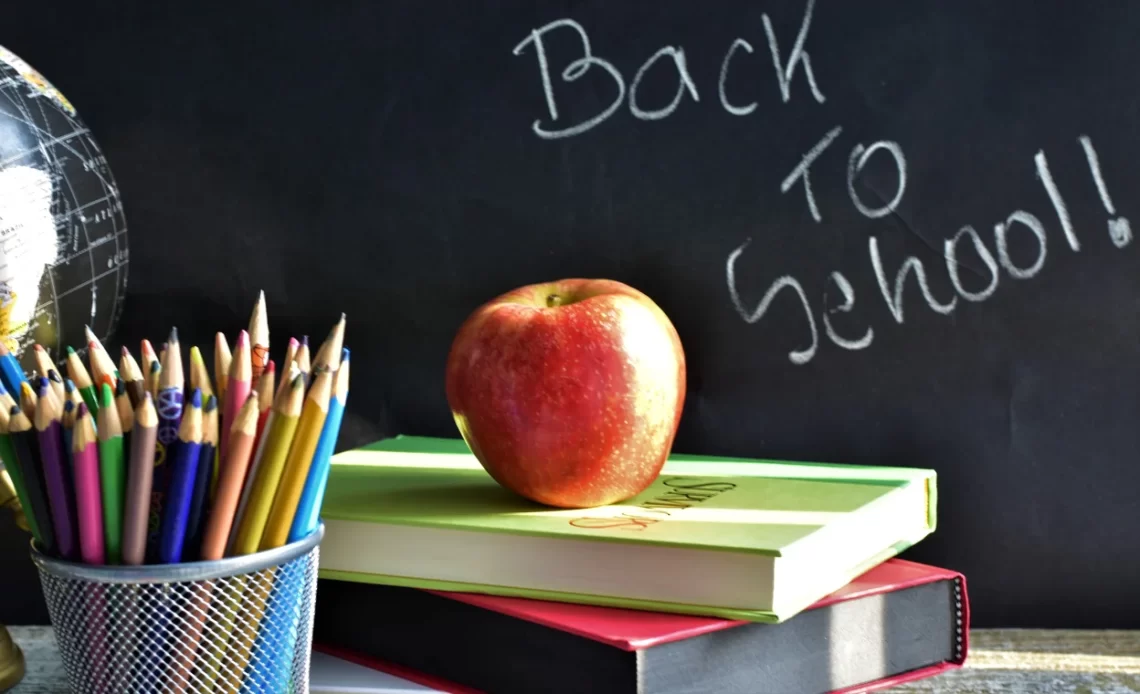
Table of Contents
Introduction
The end of summer marks the beginning of a new academic year, and with it comes the excitement and challenges of transitioning back to school. Whether you’re a student, a parent, or an educator, a smooth back to school transition sets the tone for a successful year ahead. In this article, we’ll explore some essential tips to help you navigate this transition with ease and confidence.
1. Start Early: Prepare Mentally and Logistically for Back to School
The key to a successful back to school transition is preparation. Start by gradually adjusting your daily routine a couple of weeks before school starts. Set regular bedtimes and wake-up times to help readjust your body clock. This not only eases the shock of early mornings but also ensures you’re well-rested and alert for the school day. Additionally, organize and gather school supplies, uniforms, and other essentials well in advance to avoid last-minute rushes.
2. Set Realistic Goals

As you head back to school, take some time to set realistic goals for the upcoming year. What academic achievements do you hope to reach? Are there any extracurricular activities you want to excel in? Setting clear goals gives you a sense of purpose and motivation to stay focused throughout the year.
3. Plan Your Schedule Wisely
It is important to create schedule wisely when it’s time to go back to school. Balancing academics, extracurricular activities, and personal commitments can be challenging. Use a planner or digital calendar to map out your weekly schedule, including classes, study sessions, sports practices, and social activities. Prioritize your tasks and allocate time for each one. Effective time management helps prevent overwhelm and ensures you have time for both school and relaxation.
4. Reconnect Socially
Returning back to school offers a unique chance to embark on a journey of social connection and camaraderie. Beyond textbooks and classrooms, the school environment presents a bustling social landscape where friendships are forged and new acquaintances await. As you step back into this realm, seize the opportunity not only to strengthen the bonds with existing friends but also to open the door to forming new connections.
Rekindling and deepening existing friendships is akin to reviving a cherished story. The comfort of sharing memories, laughter, and experiences with familiar faces not only brings joy but also provides a sense of belonging. These friends have witnessed your growth and evolution, and together, you’ve woven a tapestry of shared experiences. Nurturing these relationships contributes to your emotional well-being and enriches your school journey with a sense of continuity and support.
Simultaneously, stepping into the realm of new acquaintances is a canvas on which you can paint fresh experiences and perspectives. Making new friends introduces you to different personalities, backgrounds, and viewpoints, broadening your horizons and enhancing your understanding of the world around you. These new connections may lead to unexpected adventures, collaborations, and opportunities for personal growth.
Engaging socially isn’t just a remedy for back-to-school jitters; it’s a cornerstone of a positive school experience. The friendships you forge act as pillars of support through the ups and downs of the academic journey. They provide a sense of community that combats feelings of isolation and fosters a positive attitude towards school.
Moreover, social interaction has been proven to enhance cognitive function and emotional well-being. Engaging in conversations, sharing stories, and collaborating on projects stimulate your brain and contribute to a more enjoyable and fulfilling school experience. When you’re surrounded by a network of friends, both old and new, you’re equipped with a safety net that bolsters your confidence and resilience.
5. Embrace Change and Challenges
Embracing change is a fundamental aspect of the back to school transition, as each new academic year unfolds with its unique set of transformations. From the faces of your teachers to the subjects you’ll delve into and the responsibilities you’ll undertake, change is an integral and inevitable part of this journey. Rather than resisting or fearing these shifts, view them as gateways to personal growth and valuable learning experiences.
Change, at its core, is a catalyst for growth. As you encounter new teachers and subjects, you’re exposed to diverse perspectives and methodologies. This exposure broadens your horizons, offering fresh insights that can enrich your understanding of the world around you. Embrace these opportunities to learn from different teaching styles and engage actively in your subjects, realizing that each new perspective contributes to the tapestry of your education.
6. Establish Healthy Habits

Embarking on a new school year is not just about sharpening pencils and opening textbooks; it’s about nurturing a holistic approach to your well-being. The foundation of a successful school year lies in the symbiotic relationship between a healthy body and a sound mind. Prioritizing your physical and mental health equips you with the vigor and resilience needed to thrive in the academic realm.
Begin by understanding the value of physical activity. Engaging in regular exercise isn’t just about staying active; it’s about boosting your brainpower. Physical activity stimulates the release of endorphins, those delightful “feel-good” chemicals that reduce stress and elevate your mood. Whether it’s a brisk walk, a yoga session, or participation in a sports team, these activities infuse your day with positivity and enhance your mental clarity.
Balanced nutrition is another pillar of a successful school year. Your brain is a dynamic organ that requires a steady supply of nutrients to function optimally. A diet rich in fruits, vegetables, lean proteins, and whole grains provides your brain with the sustenance it craves, helping you stay attentive in class and focused during study sessions. Hydration, too, is paramount. Drinking ample water aids cognitive function, ensuring your mind is sharp and alert.
Equally crucial is the commitment to regular sleep. A well-rested mind is a resilient mind—one that absorbs information, retains knowledge, and thrives academically. Adequate sleep bolsters your memory, enhances problem-solving skills, and fosters creativity. So, establish a sleep routine that ensures you’re getting the recommended amount of rest each night. This simple yet transformative habit will pay dividends in your academic pursuits.
Moreover, engaging in activities you enjoy should not be dismissed as a mere luxury. Hobbies, passions, and creative outlets are essential components of your well-being. They offer an escape from the rigors of school, allowing you to recharge and return to your studies with renewed focus. Whether it’s painting, playing a musical instrument, or even gardening, these activities grant you the mental space to relax and rejuvenate.
7. Open Communication with Parents and Teachers
In the intricate tapestry of the school year, parents and teachers stand as the cornerstones of your support system. They embody a wealth of knowledge, experience, and guidance that can elevate your academic journey to new heights. Cultivating and nurturing open lines of communication with them is not just advisable—it’s a strategy that can significantly impact your learning experience.
Recognize that parents and teachers share a common goal: your success and growth. However, this shared objective can only be fully realized when there’s a strong bridge of communication connecting all parties involved. Maintaining a continuous and transparent dialogue enables you to align your efforts, expectations, and aspirations, fostering a collaborative environment.
Furthermore, maintaining open communication is a powerful tool in resolving challenges that might arise. It ensures that issues are addressed promptly and constructively, preventing them from escalating into larger problems. When parents and teachers work together to overcome obstacles, it sends a powerful message: that your well-being and progress are their shared priority.
8. Celebrate Achievements

As you navigate the school year, remember to celebrate your achievements, no matter how small. In fact, celebrating the smaller wins serves as a reinforcement mechanism. When you take a moment to applaud yourself for the incremental accomplishments, you’re sending a positive signal to your brain. This signal strengthens the connection between effort and reward, making you more likely to repeat those actions that lead to achievement. In essence, acknowledging your progress boosts your self-confidence and motivates you to continue striving for excellence.
9. Stay Flexible and Adapt
Flexibility emerges as a valuable and indispensable skill as you navigate the intricacies of transitioning back to school. While you might meticulously plan your schedule and routines, the reality is that unexpected events and changes in plans are an inherent part of life. These curveballs could take the form of sudden assignments, schedule alterations, or even unforeseen personal commitments. Embracing the concept of flexibility goes beyond just accommodating these deviations; it entails cultivating a mindset that thrives amidst change.
Furthermore, flexibility fosters a sense of resilience and reduces stress. Instead of resisting change, you’re equipped to embrace it and find constructive ways to adapt. This approach minimizes the negative impact of unexpected events and enables you to maintain a sense of balance and control even in uncertain situations.
10. Reflect and Adjust
As you embark on your journey back to school, it’s essential to recognize the transformative power of self-reflection. Amid the hustle and bustle of classes, assignments, and activities, setting aside moments to introspect can be a game-changer. Reflecting on your experiences and progress not only allows you to gauge the distance you’ve traveled but also offers insights into the path you wish to carve moving forward.
Begin by taking a thoughtful inventory of your goals. Are you making strides toward your academic aspirations? It’s not just about the end result but also the journey that unfolds along the way. By analyzing whether your goals are being met, you gain a deeper understanding of your strengths, areas for improvement, and the strategies that are yielding results. This introspective process acts as a compass, guiding you toward alignment with your aspirations.
However, self-reflection isn’t a mere examination of achievements; it’s also an exploration of growth opportunities. Ask yourself: What adjustments can I make to enhance my school experience? Are there new methods of studying, collaborating, or organizing my time that could yield better outcomes? This willingness to adapt and adjust your strategies demonstrates a level of maturity and a genuine commitment to your development.
Conclusion
In conclusion, a successful back to school transition involves a combination of preparation, mindset, and adaptability. By implementing these tips, you can start the academic year with confidence, enthusiasm, and a strong foundation for a successful year ahead. Remember, the journey of learning is as important as the destination of achievement.
